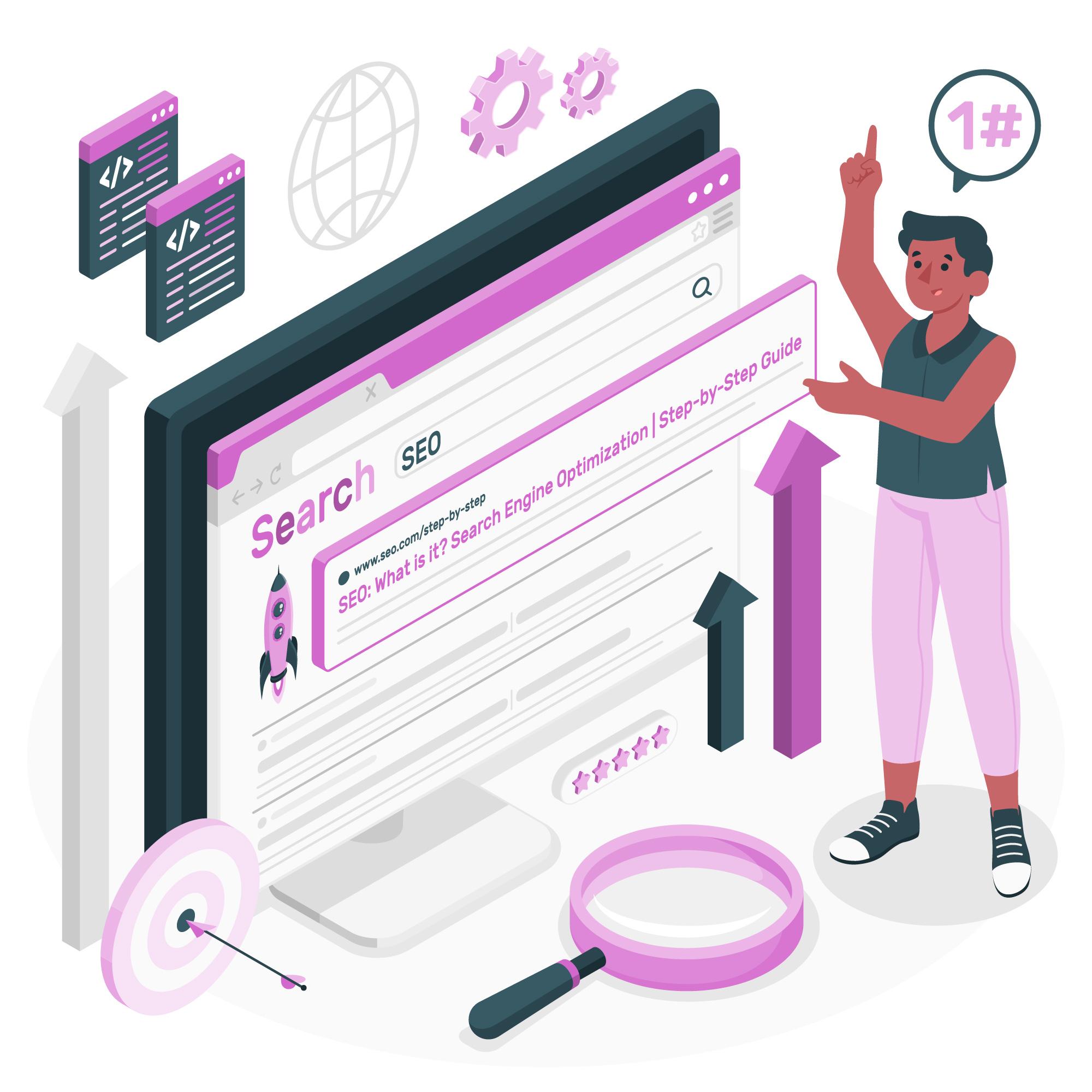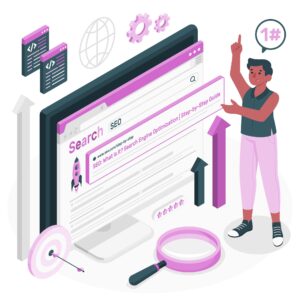“Index” and “noindex” tags belong to the meta robots group, which is a part of HTML code. Their role is to guide search engines on how to index a given page. These should be placed in the <head> section of a webpage.
Sample tags:
php
Copy code
<meta name=“robots” content=“noindex” />
<meta name=“robots” content=“index” />
These tags are widely used either to prevent or to assist in displaying pages in search results. The larger the website, the more attention needs to be given to index management.
How to assist the indexing process?
Remove indexing blocks in robots.txt file
The robots.txt file serves as a guideline for search engine bots about which parts of a website they can or can’t index. Sometimes, key sections of a website may be inadvertently blocked, making them invisible to search engines. Review your robots.txt file to ensure that you are not unintentionally preventing the indexing of important pages.
Eliminate unwanted noindex tags
The noindex tag tells search engine bots not to index a particular page. This can be useful for hiding irrelevant or duplicate content, but if applied incorrectly, it can prevent important pages from appearing in search results. Regularly review your site’s meta tags to ensure that no essential pages are marked as noindex.
Include the subpage in your sitemap
A sitemap is like a roadmap that guides search engines to all the different sections of your website. By including all relevant subpages in your sitemap, you improve the chances of these pages being indexed and ranked by search engines. This is particularly important for new or recently updated pages that may not yet have been discovered through the regular crawling process.
Remove unwanted and incorrect canonical tags
Canonical tags are used to indicate the “preferred” version of a webpage, helping to prevent issues related to duplicate content. However, incorrect implementation can confuse search engines and result in the wrong page being indexed. Ensure that your canonical tags are correctly configured to point to the most appropriate version of each page.
Check if the page is an orphan (also known as an orphan page)
An “orphan page” is a webpage that is not linked to from any other page on the website, making it difficult for search engine bots to discover it. Regularly check your website for orphan pages and either link to them from other relevant sections of your site or consider removing them if they are not valuable.
Change internal links marked as nofollow to follow
Nofollow tags on internal links prevent the flow of “link juice,” or the authority passed from one page to another. Unless you have a good reason to restrict this (such as for login pages), it’s generally best to allow link juice to flow freely within your website. Review your internal links to ensure that they are marked as follow where appropriate.
Add internal links to the most important subpages on the website
Internal linking is an effective way to guide both users and search engine bots to the most important content on your site. This can help distribute page authority throughout your site and make it easier for search engines to understand the structure and hierarchy of your content.
Make sure the subpage is valuable and unique
Search engines aim to deliver the most relevant and valuable content to users. Ensure that each subpage on your website provides unique and valuable content that addresses the needs and queries of your target audience. This will not only improve the user experience but also boost the page’s chances of ranking well.
Remove low-quality subpages to optimize crawl budget
Search engine bots have a “crawl budget,” which limits the number of pages they will crawl on your site within a given time frame. Removing or consolidating low-quality, irrelevant, or duplicate pages can free up this budget, allowing search engines to spend more time on your important pages.
Build a high-quality external link profile
External links (also known as backlinks) from reputable websites can significantly boost your site’s authority and search rankings. Focus on building a high-quality link profile by reaching out to reputable sites in your niche, guest posting, or creating shareable content that naturally attracts high-quality links.
By paying attention to these points, you can effectively manage your website’s indexing and improve its visibility in search engine results.
How to further prevent indexing of pages?
- Remove content from the given subpage (after changing the status of the page to a 404 or 410 error, it should disappear from search results upon re-crawling by Google bots)
- Limit access (secure access to the given subpage with a password)
- Use the URL removal tool available in Google Search Console
- Proper use of canonical links
Index management is one of the fundamental aspects of SEO. Index and noindex tags are invaluable tools in this process, allowing control over which pages should be included in search results and which should be omitted. In the age of competitive internet and complex sites, the ability to precisely direct search engine robots is invaluable.
These tags are part of a set of instructions for search engine bots that crawl and index content online. Thanks to them, website owners can precisely specify which elements of the website are crucial and should be included in the index, and which should be skipped to protect privacy, avoid content duplication, or optimize the crawl budget.
In practice, this means that if you want specific pages of your website to be visible and easily accessible to users in search results, you should use the index tag. However, if there are pages that do not bring value to users, are duplicated, or for any other reason should not be available in search results, the noindex tag is the appropriate option.
Index and noindex tags play a key role in the SEO strategy of any website. They enable effective steering of the indexing process, ensuring that only the most important and valuable content is visible in search results. Proper use of them can significantly impact the site’s visibility, its ranking, and the overall user experience quality. To effectively manage indexing, it is not enough to just apply the appropriate tags, but also to understand which content is most valuable for your website and what SEO tools can assist you in this task.







